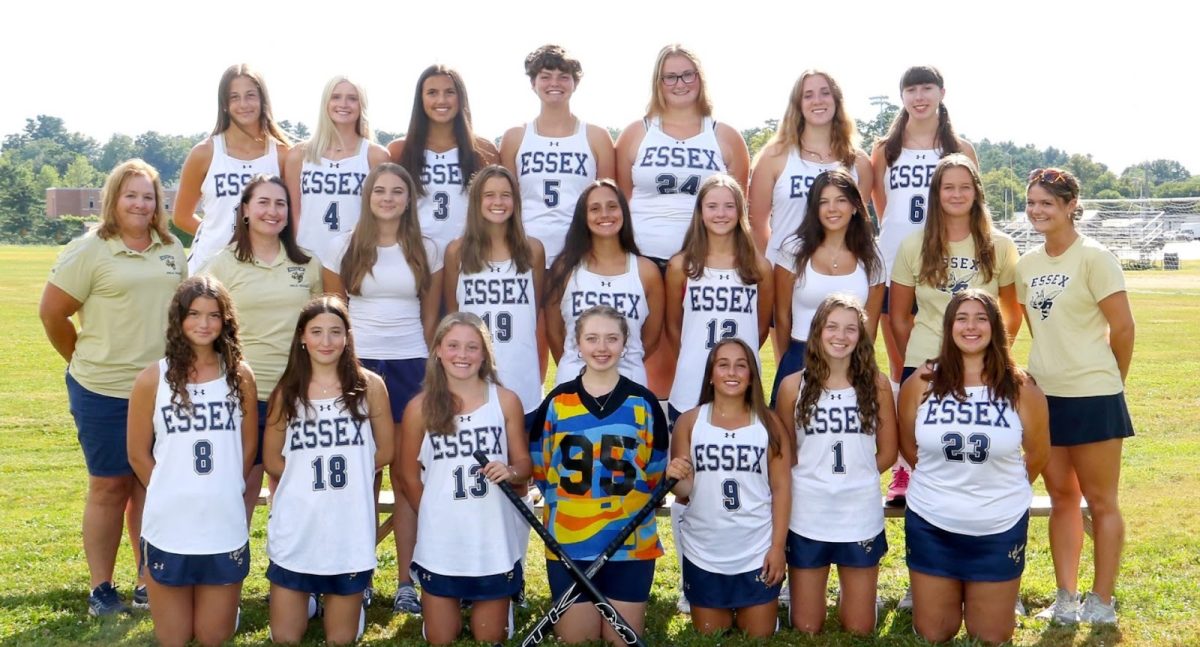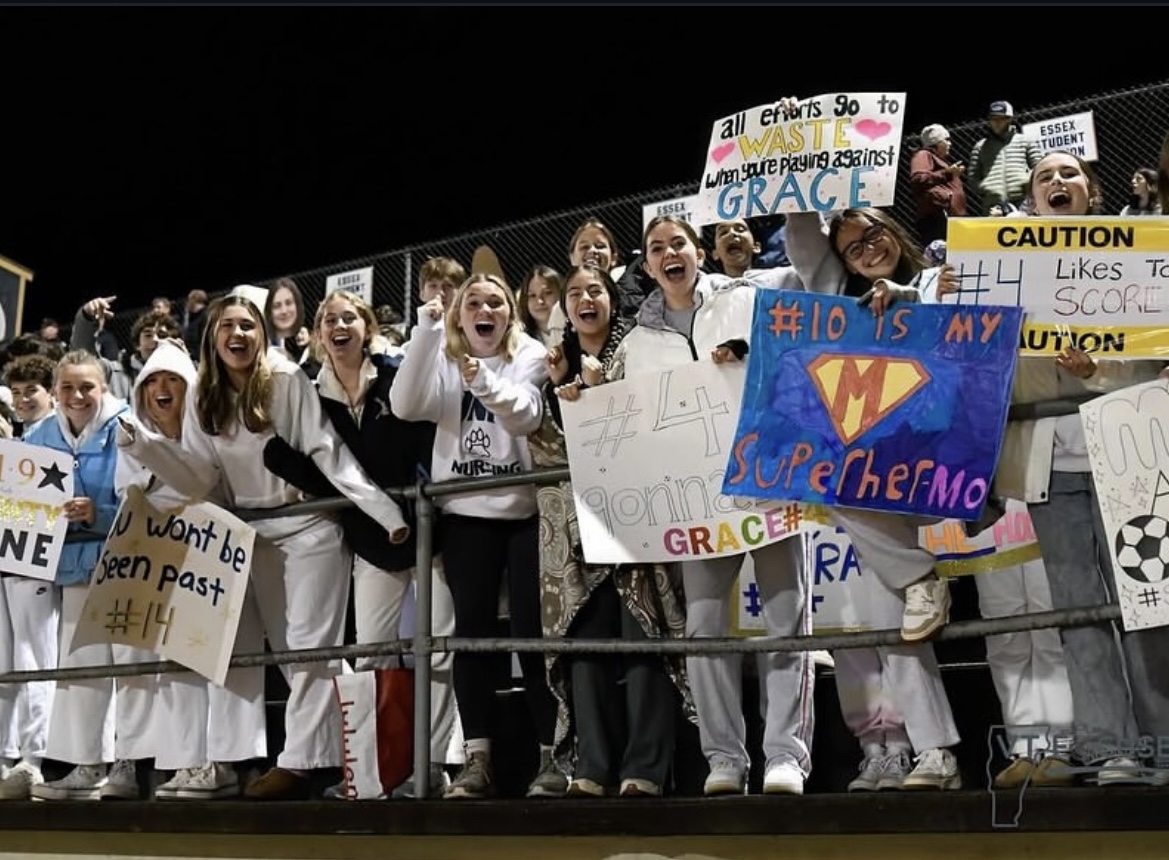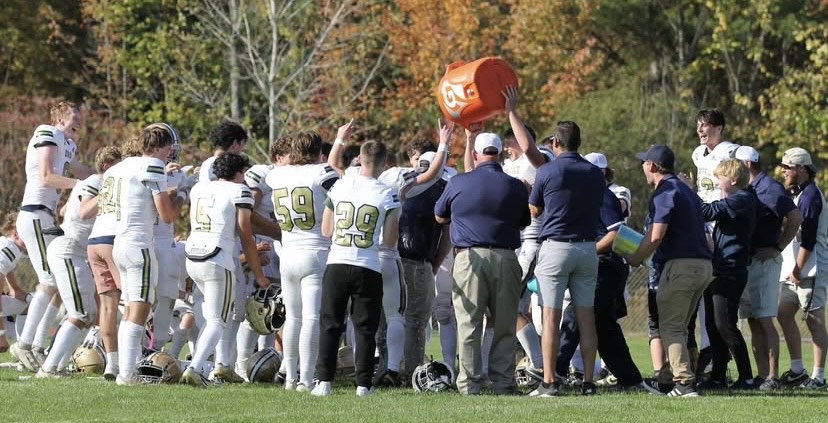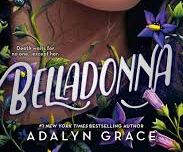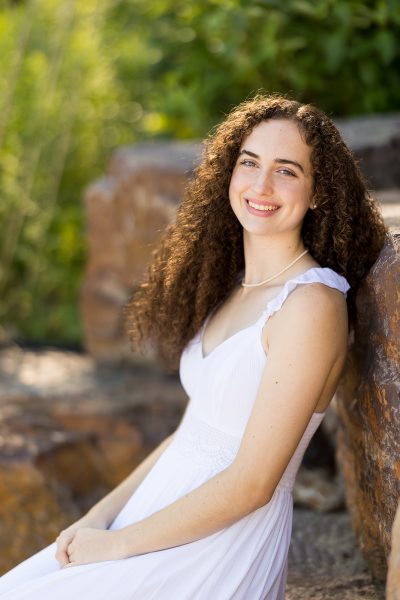Recently, the Vermont bill S.220, which is described as “an act relating to Vermont’s public libraries” was delivered to Governor Phil Scott’s desk after passing the Vermont Senate and House of Representatives on May 28, 2024. The bill, if passed, would change and standardize the process required for library materials to be reconsidered in public high schools. Essex High School’s Library Media Specialist, Liz von Nagy, discussed the significance of this bill as the trend of book banning has becomes increasingly prevalent around the country.
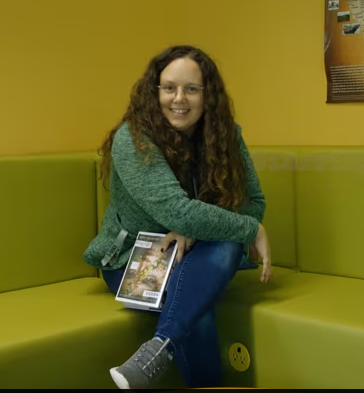
Von Nagy first heard about S.220, as well as the related bills H.807 and H.806 through the connections she has with other Vermont librarians through the Vermont School Librarians Association.
Von Nagy detailed the most prominent effects S.220, if passed, would have on the process of book banning within public school libraries, including within our own district.
“Most of this bill is about public libraries,” von Nagy said. “Only a part of it is about school libraries in particular…Section 7a, Item B [states], ‘In order to ensure a student’s First Amendment rights are protected and all students’ identities are affirmed and dignity respected, the policy and procedures required under subsection (a) of this section shall prohibit the removal of school library materials for the following reasons:’ So this is what it would change,” von Nagy states, “‘’partisan approval or disapproval.’ If you say I don’t like the book, if this bill passes, that would no longer be a valid reason for reconsideration. ‘The author’s race nationality, gender identity, sexual orientation, political views or religious views, school board members or members of the public’s discomfort, personal morality, political views or religious views.’”
Because the bill in question is in place to protect the First Amendment rights of young readers, von Nagy explained why she believes it is important for this right to be ensured.
“You have a First Amendment right to access the information that you would like to access and what this bill does is that makes the implicit explicit,” von Nagy said. “Young people have a right to read books that they want to read….Joe Schmoe has every right to say, ‘I don’t want my little boy Johnny to read this book,’ but Joe Schmo doesn’t have the right to say nobody can read this book.”
As book bannings become more prevalent around the country, data has been collected on the themes common within the books that tend to be challenged and ultimately banned.
“I don’t feel, I know that some types of books are challenged more than others because the data is there,” von Nagy said. “You can go on the American Library Association website and look at the types of books that are being banned, and you’ll notice that they disproportionately target BIPOC and LGBTQI+ authors. What this tells me if you look at some of the data, especially out of Florida [and] Texas as compared to Vermont, [there is a difference in] the sheer number of bans. I think it’s evidence that it’s a somewhat coordinated effort. The best thing that we can do for protecting our rights to read is to speak up about the fact that we have these rights and that they should be protected.”
Even before this bill was considered within the Vermont legislature, the Essex Westford School District had a policy in place for the process required to ban specific library materials.
“The procedure is the concerned party would reach out to either myself or the principal and request a Request for Reconsideration form,” von Nagy said. “It asks a little bit of information about the book and then it asks them for them to read the work in its entirety to understand the full context….What would happen next is a team of people would be formed that would be representative of the community….I [then] compile some documentation for the book in question.….Once everybody reads all the information and reads the book, the committee meets, and they vote on whether or not to keep the book and that vote is what determines if a book is banned or not. If they vote to discard the book from the library’s collection, then I would be forced to pull it from the shelf. If, however, they voted to keep the book, that decision stands and the book stays on the shelf.
According to von Nagy, at Essex High School, no books have been banned, although requests for reconsideration were filed for the graphic novel Genderqueer by Maia Kobabe. 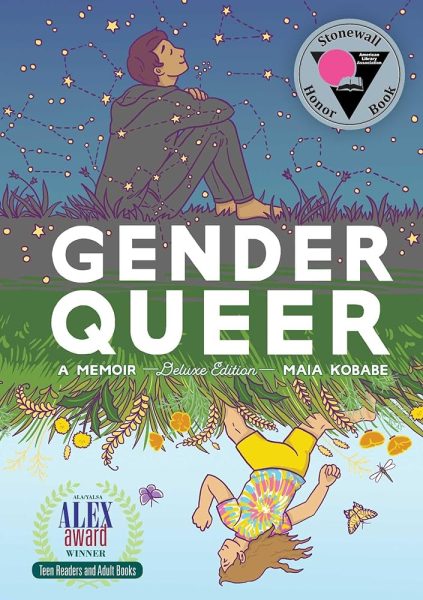
The book is described as an “intensely cathartic autobiography about [Kobabe’s] path to identifying as non-binary and asexual, and coming out to their family and society” by the publisher and has been highly criticized for its discussion surrounding the author’s sexuality and gender identity.
“There were a few concerned parties that filed requests for reconsideration,” von Nagy said, regarding Genderqueer. “We voted to keep the book clearly because there was no opportunity for me to have a conversation with those concerned parties. That’s the thing I wish I could redo. Oftentimes when you have a concerned party, a conversation resolves their concern, and I never had the opportunity to converse with these people….We voted on the book, and we voted to keep the book.
Von Nagy mentioned her strategy in recommending books to young readers within the context of books like Genderqueer.
“This does address some really heavy topics that have really powerful imagery,” von Nagy said. “When a student comes up to me with a book in hand, and they’re like, ‘I’m excited to read this book. What can you tell me about this book?’ What I would say is, ‘first of all, this is a great book. It’s an award winner.’ I don’t give this book to just everybody. Then I say to them, ‘This does have heavier subject matter in it.’ ‘I’m going to encourage you to take out this book today. But I also want to encourage you if you ever become uncomfortable, or ever start to feel unsafe in a book, put it down.’ Checking out a book is not signing a contract that you have to read that book. I want to inform and empower when that happens….I do always give a little content warning when a student picks up a book like this.”
Von Nagy spoke about Banned Books Week and the support she wished our library received.
“Banned Books Week is every October and the point of that week is to bring awareness to your right to read and bring awareness to the fact that sometimes libraries need help advocating for patrons rights to read,” von Nagy said. “I can advocate my brains out, and hopefully, I’m good at that. Hopefully, it’s successful, but it’s most powerful when patrons or students understand why it’s important to advocate for your right to read. My intention with Banned Books Week is to educate people on their rights and make sure that they know that this district protects their right to read, and this bill would strive to do this.”
As library materials are challenged increasingly often in states like Texas, Florida, and von Nagy’s home state of Nebraska, members within our community encourage young people to become involved in events such as Banned Books Week as well as National School Library Week in April to protect students’ right to read.
“I would love to see kids write to their senators, write to their representatives and say, ‘Hey, this bill is important to me and protects my rights,’” von Nagy said. “And I think that will help push us forward.”




